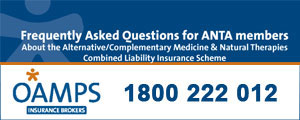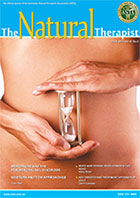News Categories
CAMELOT: An opportunity to get involved in research and earn CPE points
Do you want to…
Help raise the profile of natural therapies?
Earn CPE points?
Get involved in research?
If you practice in Victoria and see clients who have Type 2 diabetes or cardiovascular disease (including hypertension), then read on!
![]() CAMELOT: An opportunity to get involved in research and earn CPE points. (PDF 352KB)
CAMELOT: An opportunity to get involved in research and earn CPE points. (PDF 352KB)
The CAMELOT study, at Monash University, is investigating the use of complementary and alternative medicine (CAM) and chronic disease self-management among people with Type 2 diabetes or/and cardiovascular disease (CVD). The focus is on the influences, costs and benefits of CAM use. The study does not involve a clinical trial but participation in an interview, focus group, or completion of a questionnaire.
See www.camelot.monash.edu.au.
To participate: The researchers need assistance to recruit ‘consumers’ (your clients) in Victoria who: (1) have been diagnosed at least 12 months ago to have Type 2 diabetes or cardiovascular disease (CVD) – CVD is a broad category including MI, angina, hypertension, TIAs, stroke, and so on; (2) have consulted any sort of CAM or integrative practitioner to assist in the management of their chronic illness or health more generally; and (3) speak fluent English. The treatment you provide will not be evaluated or critiqued by the researchers who are looking more generally at consumer actions and preferences. All participants remain anonymous in the research findings. If you would like to contribute but you do not see clients with these conditions, contact the researchers anyway and let them know—because that in itself is information of interest.
Earn CPE points: Research activity is eligible for continuing professional education (CPE) points by most CAM professional associations – at around one point per hour of participation. If you receive this notice from your professional association, then your association supports this programme. By encouraging eligible client participation you are involved in the research recruiting process. You will need to understand the CAMELOT study to be able to effectively recruit for the study. Contact the researchers for more information.
Overcome limitations and medical dominance: The majority of participants have been recruited from diabetes and heart support groups. Few members of these support groups visit CAM practitioners. Unfortunately there is no easy way to identify users of CAM therapies other than via practitioners, and despite support from CAM professional associations, only a few participants have been recruited via practitioners. Because of this, the study results indicate that very few people with CVD or Type 2 diabetes seek support from CAM practitioners. But is this really the case? By supporting this research and encouraging your eligible clients to be interviewed, you will be helping to raise the profile of CAM therapies for the treatment of chronic conditions.
Raise the profile of natural therapies: This is a high calibre study, funded by the National Health and Medical Research Council (NHMRC) in their first ever round of CAM funding. The study is overseen by a Reference Group comprising representatives from CAM, medical and consumer organisations. The study has the potential to help shape future health policy acknowledging the complexity and pluralistic nature of the Australian healthcare environment – including raising the profile of participating CAM professions. The research also contributes to a better understanding of the experiences of people living with CVD or Type 2 diabetes – and so may assist to improve related treatments and services.
Next steps:
1: Find out more about the study and get information from the researchers to give to your clients.
2: Contact your eligible clients and encourage them to participate. To participate your clients must contact the researchers themselves to arrange a time and place for the interview (usually at the home of the interviewee).
Note: Explanatory statements and interview consent forms can be downloaded from the website, or delivered via post or email.
See www.camelot.monash.edu.au for more information or contact the project manager, Rachel Canaway, on 03 9903 4507 or email rachel.canaway@med.monash.edu.au.

Use our search facility to find what you're looking for on the ANTA website.

The Natural Therapist


